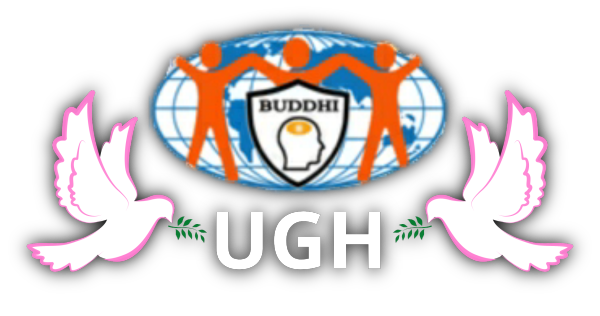The Rise of Nationalism
Is the resurgence of Nationalism, fuelled by the Covid-19 Pandemic, a threat to World Preace?
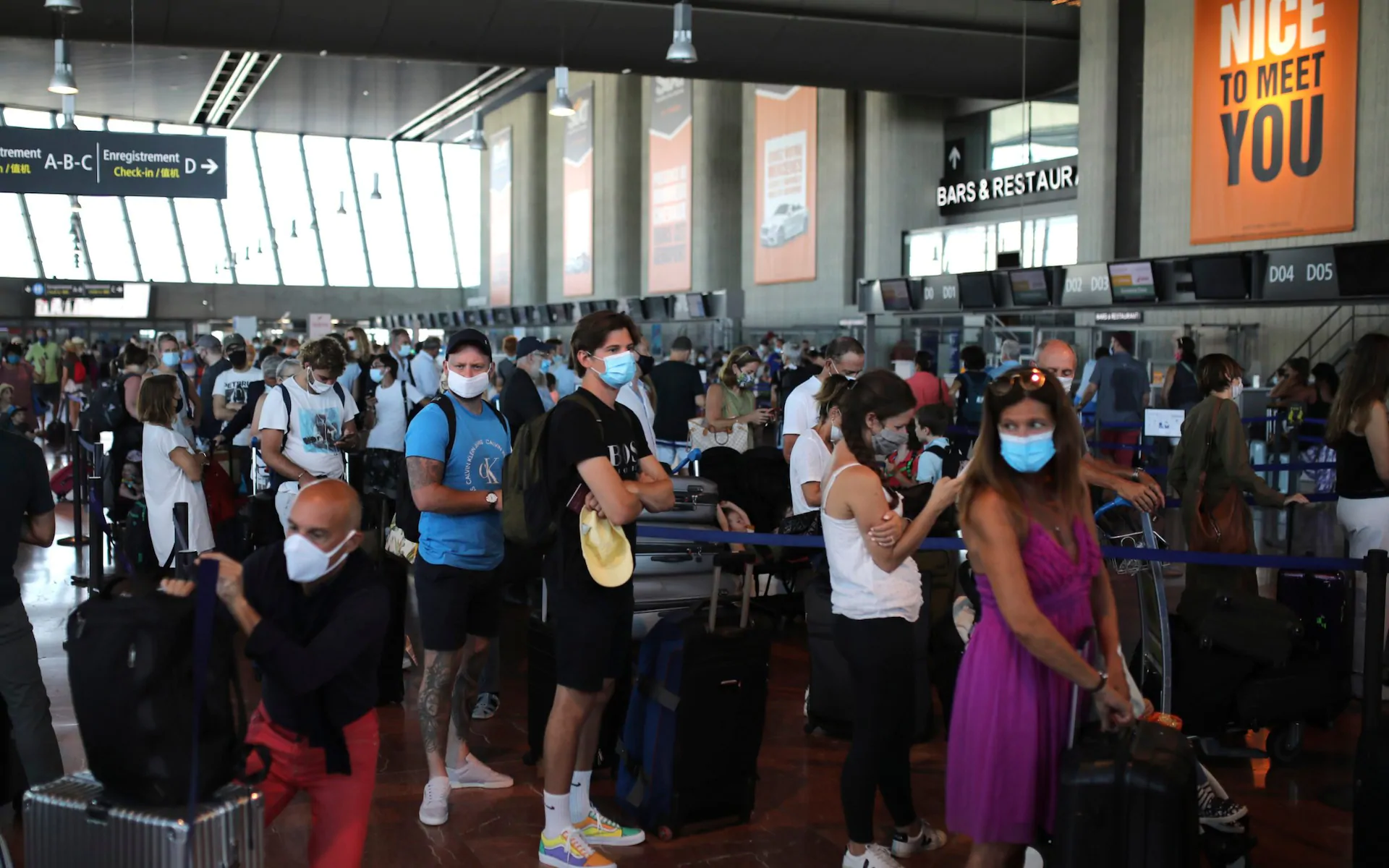
Credit: AP Photo/Daniel Cole
People queue in line to check-in for a British Airways flight to Heathrow airport from Nice airport
The Covid-19 Pandemic caused a significant shift towards vaccine protectionism across the planet as Governments scambled to combat the spread of a disease that posed the greatest immediate threat to human health since the 1918 Flu pandemic.
As the scale of the spread of the disease dawned on Leaders around the world, many Governments imposed border closures and travel restrictions. However the
implementation was, at best, chaotic.
Many countries initially allowed their citizens unrestricted access from foreign travel as they sought to return to their homes before borders were closed and travel banned,
and almost all were initially unable because of the novel nature of the disease, or unwilling, politically, to impose health checks on these returnees.
So, does the closure of borders in the hope of containing or limiting the spread of a highly contageous and deadly disease mean that 'Nationalism', and all it's unwelcome spectres from the past, is on the rise?
immigration plus the nationalist-populist reactions to it are in the current decade the main testing ground for nationalist and cosmopolitan views
How do we define Nationalism?
The concept of 'Nation' and 'Nationalism' is complex and they often have different meanings for people; I think we must pause here to define 'Nation'.
The Cambridge dictionary defines a 'Nation' as:
A country, especially when thought of as a large group of people living in one area with their own government, language, traditions, etc.
Having defined what is meant by 'Nation', what is defined as 'Nationalism'?
The Stanford University dictionary of philosophy says about 'Nationalism':
Although the term "nationalism" has a variety of meanings, it centrally encompasses two phenomena: (1) the attitude that the members of a nation have when they care about their identity as members of that nation and (2) the actions that the members of a nation take in seeking to achieve (or sustain) some form of political sovereignty.
Is Patriotism and Nationalism the same thing?
We've looked at a definition of Nationalism, so let's have a look at defining 'Patriotism'.
The Miriam-Webster dictionary says that the use of the word Patriotism is older than nationalism, with 'published written evidence dating back to the middle of the 17th century'.
Miriam-Webster goes on to say:
These two words may have shared a distinct sense in the 19th century, but they appear to have grown apart since. Or rather, it would be more accurate to say that only nationalism has grown apart, since the meaning of patriotism has remained largely unchanged. There are still obvious areas of overlap: we define patriotism as "love for or devotion to one’s country" and nationalism in part as "loyalty and devotion to a nation." But the definition of nationalism also includes "exalting one nation above all others and placing primary emphasis on promotion of its culture and interests as opposed to those of other nations or supranational groups." This exclusionary aspect is not shared by patriotism.
Miriam-Webster state that the relationship between the two words, Patriotism and Nationalism is problematic; it seems there is no definitive concensus about the meanings of the words.
However a quote by the American Journalist Sydney J. Harris sums up nicely, I believe, the difference:
"The difference between Patriotism and Nationalism is that the Patriot is proud of his Country for what it does, and the Nationalist is proud of his Country no matter what it does."
Populism
Many people, when talking about nationalism, use the word 'nationalist' and the term 'populist' interchangeably, however the word is more frquently allied to the right-wing ideologies i.e. "nationalist-populist", a term often used to describe former U.S. President Donald J. Trump.
"Populism" is an cover-all term, covering both right-wing and left-wing varieties;
According to Cas Mudde, author of Populism: A Very Short Introduction, in political science, populism is the idea that society is separated into two groups at odds with one another - "the pure people" and "the corrupt elite".
Many populist leaders and politicians will use current trends in order to maintain the two-group separation, for example the rise in popular antagonism over the huge increase in migration of peoples from war-torn and/or impoverished nations to the more affluent nations.
This approach provides Nationalist leaders with a flexible basis on which to "give the people what they want", allowing them to almost perpetually maintain a state of internal flux that allows them to appear to have the answers that 'the people' want to their real or perceived concerns or problems.
Nationalism
Since the Second World War, Nationalism has become a dirty word. But is it?
I am proud of the Country where I was born; I am proud to be a citizen of that Country and strive to uphold its laws and values. So does that mean that I am a Nationalist?
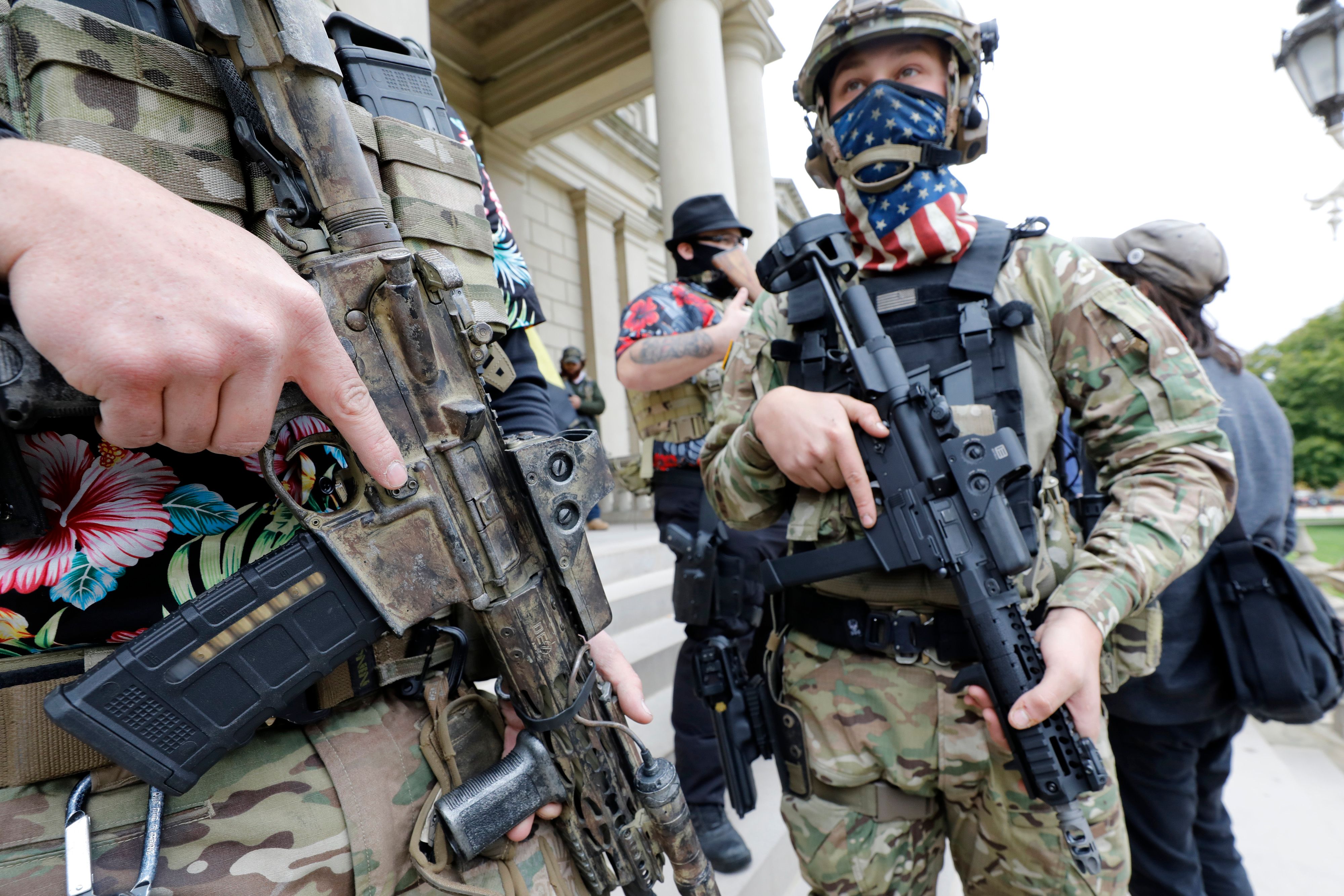
Armed militia group in the U.S.
Label a person a 'Nationalist' and the image of a segregationist, right-wing, racist, violent thug who fervently believes that their country and its people is better than others, and is prepared to use violent means to back up their views, is conjured up in the minds of many.
The spectre of Nazi Fascism at it's worst and the past horrors of fascist regimes is then used to stigmatise and marginalise them.
But is this view of Nationalism the whole truth? Of course not. To perjoratively label a 'Nationalist' as a 'Fascist' or 'Neo-Nazi' is a huge over-simplification; to coin a phrase, 'one man's terrorist is another man's freedom fighter'. However, the emergence of groups such as the National Socialist Movement (NSM) in the U.S. and the Svoboda 'Azov Batallion' in the Ukraine - that has been formally integrated in the Ukraine National Guard, is a cause for more than mere concern.
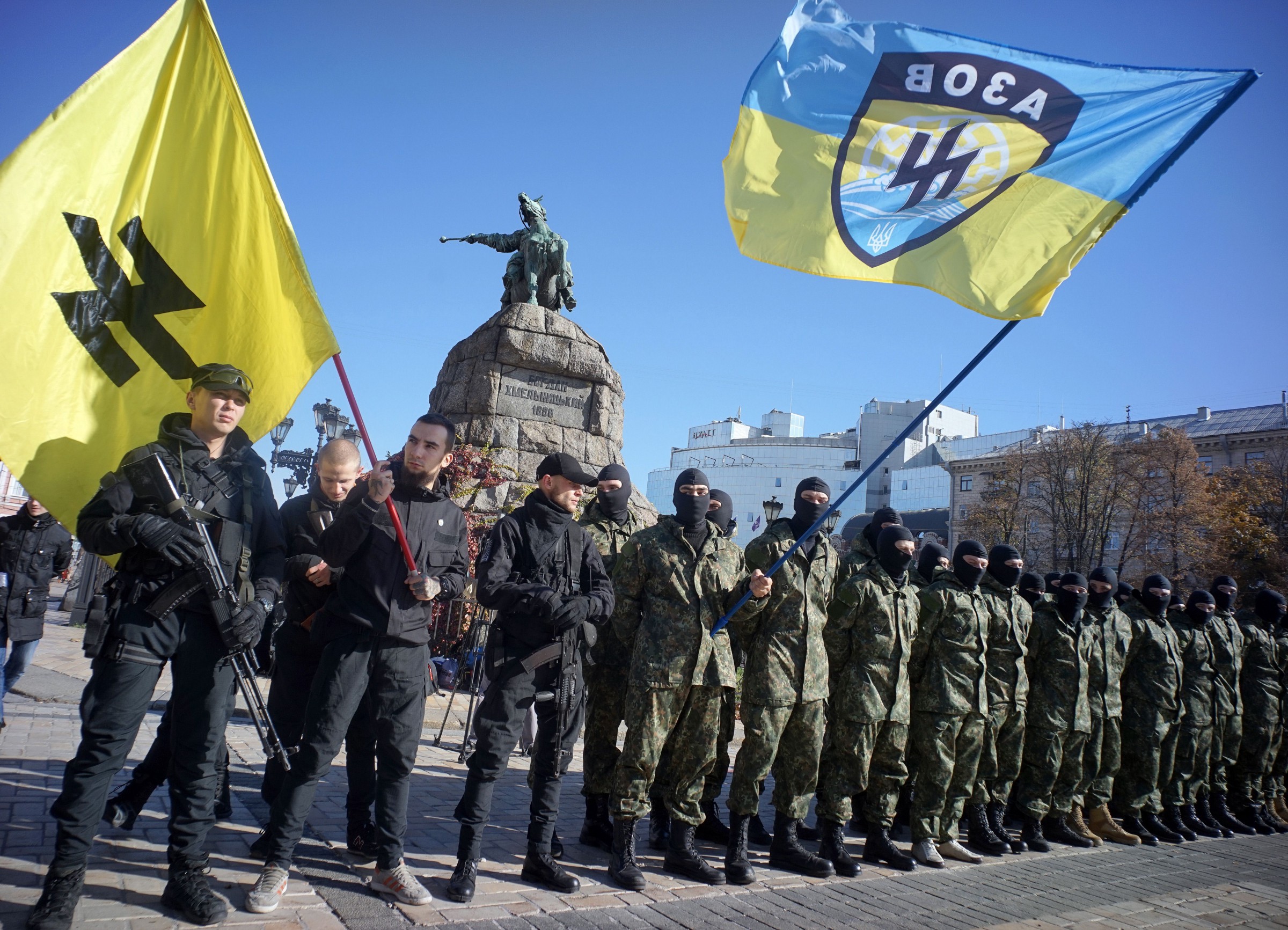
Members of the Svoboda 'Azov Batallion' in the Ukraine
The storming of the U.S. Capitol Building by the supporters of President Donald Trump, who were variously described as 'domestic terrorists', far-right militia, or just plain thugs, sent shock waves through the U.S. and western democracies.
Up to that point in time much was made by security experts in the U.S. of threats from external groups usually linked to Islamic extremism.
However, according to a 2017 report by the U.S. Government Accountability Office, "of the 85 violent extremist incidents that resulted in death [in the U.S.] since
September 12, 2001, right-wing violent extremist groups were responsible for 62 (73%)".

U.S. Neo-Nazi NSM members
The U.S., along with many European and former Communist bloc countries, has seen a dramatic rise in pro-nationalist groups and political parties.
Whilst pro-mationalist political parties are having a tougher time reaching popular status for example the National Rally in France or the Greek Golden Dawn party, the same cannot be said for the pro-nationalist groups such as the National Socialist Movement in the U.S. or the right-wing Svoboda group in the Ukraine.
So, can we find an explanation for the renewed rise of Nationalism?
Psychologist Nigel Barber in an article for Psychology Today writes: "When times get tougher, people get tougher too".
"Can this reasoning account for the resurgence of nationalism and extreme right-wing opinions? There are several reasons that the lives of ordinary people have become more stressful, accentuating their shift to the right even in a period of unprecedented affluence".
"One obvious problem in the US and some other affluent countries is that, in a period of increasing financial wealth, the share of income going to the lower half of the distribution is not rising. This generates unhappiness and disillusionment. We must not forget that the extreme right wing movements of Europe in the 1930's were bred of the Great Depression and crushed dreams of working people, who were offered ethnic minorities as scapegoats for their problems".
"We have the insanity of impending protectionist tariff wars that end badly for everyone. Meanwhile, we have China-first maritime imperialism and Russia-first territorial expansion."
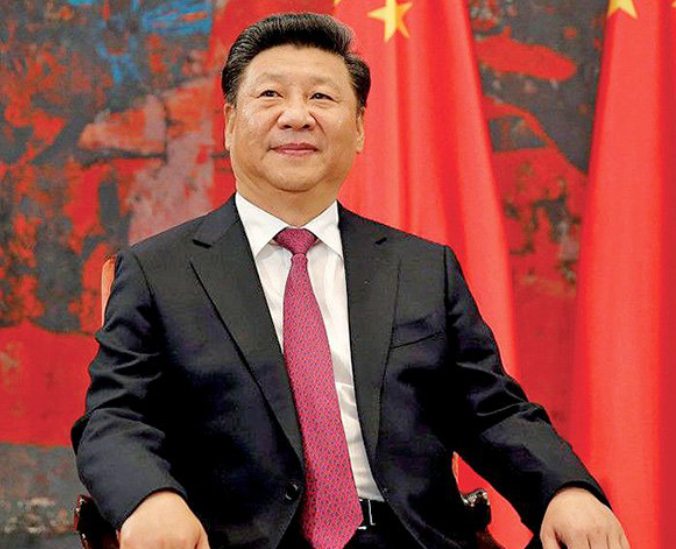

Xi-Jinping of China and Vladimir Putin of Russia, two openly Nationalist leaders
Barber says in his conclusion: "We have seen this movie before. The previous two versions ended badly. No one should want to see it again."
Novelist Elif Shafak writing for Quartz states, "Much has been said about how today’s political environment bears a resemblance to the interwar years of 1918 to 1939. But comparisons of this kind, while they have some degree of validity, can be misleading insofar as they prevent us from seeing what is completely new and different".
Shafak goes on to say, "Today’s nationalistic movements, despite all their flag-waving rhetoric, benefit critically from international financial support and corporate structures,
from online networks and digital partnerships to handshake alliances.
One of the biggest ironies of our time is that in the 21st century, nationalism has become a true benefactor of globalization."
The real problem with Nationalism
The real problem with Nationalism is not, I believe, the relatively small in number right-wing groups in themselves because they generally do not have the backing of the State that will allow them to gain prominence; it is the growing number of Political leaders and heads of Governments who embrace populist-nationalism who, if left unchecked by the more liberal minded people, will shape their laws and state apparatus to suit the Nationalist ideology - as happened in Germany, Italy and Japan prior to WWII; leaders such as:
Recep Erdogan of Turkey - widely condemned for promoting religious intolerance, electoral rigging, human rights violations, anti-feminist views, and corruption;
Vladimir Putin of Russia, - who has a record of jailing political opponents, purges and curtailed press freedom, lack of free and fair elections, accusations of persecution, torture and assassination of political critics and activists;
Kim Jong-un of North Korea - accused of murdering his uncle and all his uncles's close relatives, purges and executions of Party members and human rights violations.
Donald J. Trump former U.S. President - accused of racism and racial bias, financial ireegularities, twice faced impeachment, accusations of inciting insurrection, spreading misinformation about the Covid-19 Pandemic, accused of mysogeny and sexual misconduct.
And the list goes on with leaders such as Xi Jinping - People's Republic of China; Jair Bolsonaro - President of Brazil; Rodrigo Duterte - Phillipines President; Alexander Lukashenko - President of Belarus.
So what makes these Nationalist leaders, and others like them, so dangerous for the world as a whole?
Lisa Wade, writing for Pacific Standard, Jun 14, 2017, writes the following:
Nationalism — a passionate investment in one’s country over and above others — is neither good nor neutral. Here are some reasons why it’s dangerous:
Nationalism is a form of In-Group/Out-Group thinking:
It encourages the kind of "us" vs. "them" attitude that drives sports fandom, making people irrationally committed to one team. When the team wins, they feel victorious (even though they just watched), and they feel pleasure in others' defeat. As George Orwell put it: "A nationalist is one who thinks solely, or mainly, in terms of competitive prestige … his thoughts always turn on victories, defeats, triumphs and humiliations".Committed to winning at all costs, with power-seeking and superiority as the only real goal, Nationalists feel justified in hurting the people of other countries:
Selfishness and a will to power — instead of morality, mutual benefit, or long-term stability — becomes the driving force of foreign policy. Broken agreements, violence, indifference to suffering, and other harms to countries and their peoples destabilize global politics. As the Washington Post wrote in its unprecedented editorial board opinion on Trump: "The consequences to global security could be disastrous".Nationalism contributes to internal fragmentation and instability:
It requires that we decide who is and isn’t truly part of the nation, encouraging exclusionary, prejudiced attitudes and policies toward anyone within our borders who is identified as part of "them". Trump has been clearly marking the boundaries of the real America for his entire campaign, excluding Mexican Americans, Muslims, African Americans, immigrants, and possibly even women.A leader with a Nationalist mandate will feel entitled to breaking the laws of his or her own country:
If the Constitution interferes with nationalist ambition, then the Constitution can be set aside. Trump has discussed controlling the media, interfering with the judiciary, unlawful torture, and extrajudicial murder. Some of his supporters want to imprison his political rivals. None of this is legal, but he doesn’t care.A Nationalist leader wWill have to lie and distort history in order to maintain the illusion of superiority:
A nationalist regime requires a post-truth politics, one that makes facts irrelevant in favor of emotional appeals. As Dr. Ali Mohammed Naqvi explained: "To glorify itself, nationalism generally resorts to suppositions, exaggerations, fallacious reasonings, scorn and inadmissible self-praise, and worst of all, it engages in the distortion of history, model-making and fable-writing. Historical facts are twisted to imaginary myths as it fears historical and social realism".Thoughtful and responsive governance interferes with self-glorification; internal reflection and external criticism must be squashed:
Nationalist leaders attack and disempower anyone who questions the nationalist program and aim to destroy social movements. After Trump’s acceptance speech, Black Lives Matter co-founder Patrisse Cullers responded: "He … threaten[ed] the vast majority of this country with imprisonment, deportation and a culture of abject fear." Anyone who isn't on board, especially if they are designated as a "them", must be silenced.
Wade concludes the article by writing: 'And that’s dangerous. It's committing to one's country's preeminence and doing whatever it takes, however immoral, unlawful, or destructive, to further that goal'.
Globalisation and the re-emergence of Nationalism
Driven and fuelled by the coronavirus pandemic, national borders, both economic and physical, are returning with a vengeance
Kenichi Ohmae's book, The Borderless World, was published in 1990, the year after the fall of the Berlin Wall and quickly became a classic text of globalisation proponants. The book details the 'melting away' of national economic borders and how the digitally interconnected world would benefit.
But, driven and fuelled by the coronavirus pandemic, national borders, both economic and physical, are returning with a vengeance. When the pandemic passes, the most severe barriers to travel and trade will be lifted. Nevertheless, it seems unlikely that a full restoration of the globalised world, as it existed before Covid-19, will emerge. The nation-state is making a comeback, driven by this unparalled and devastating crisis.
There are three main reasons for this. First, the pandemic is highlighting that in times of crisis people fall back on the nation-state that, generally, has power and strengths, in financial and organisational areas for its citizens, that global institutions are lacking.
Second, the Covid-19 crisis starkly revealed the ultimately fragile nature of global supply chains. This became immediately apparent in the scramble by Governments to obtain medical supplies and protective equipment for its health workers.
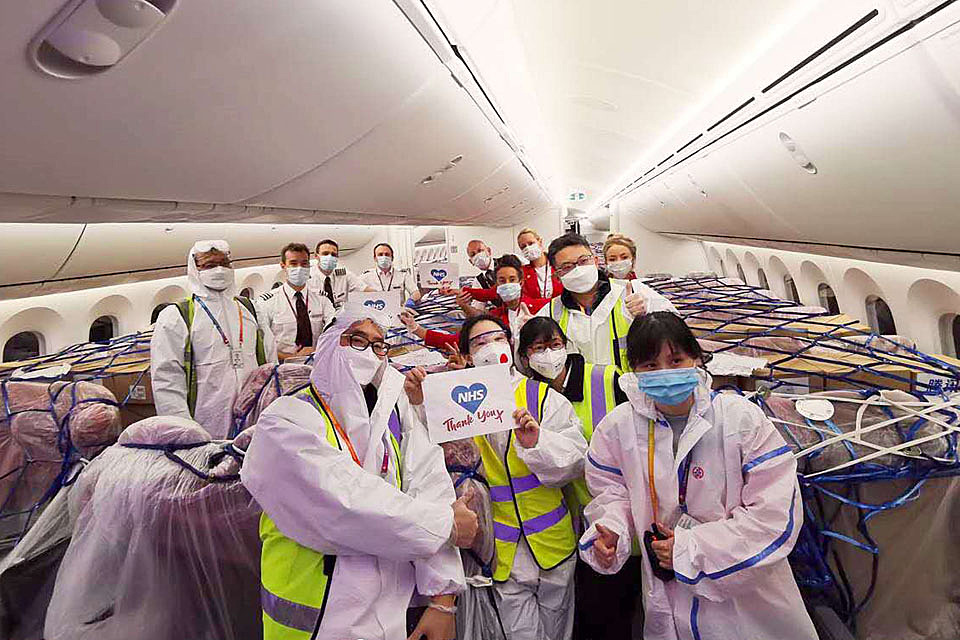
April 2020, China donates PPE to UK
It is hard to believe that the major economies and other large, developed countries will continue to accept a situation where they are forced to import most if not all of their vital medical supplies.
Finally, the pandemic is reinforcing political trends that were already starkly apparent before the crisis broke - in particular, the growing popular demand for more
protectionism, localisation of production, and tougher frontier controls.
During a crisis such as a pandemic, the tightening border controls makes sense; and if a reversion to the nation-state is kept within bounds, it need not be a bad thing; It
could be seen simply as a political 'course correction' that takes place in democracies, in response to events and changes in the public mood.
This was demonstrated in the UK referendum held to decide if the UK should remain in or leave the European Union. The 'leave' side played heavily on the EU open border policy that allowed, what was seen by many, as uncontrolled mass immigration to the UK of peoples from Africa and the middle-east. The 'leavers' called for the UK to 'regain control of its borders', a message that fell on receptive ears.
Although the 'leave' result - with just over fifty per cent of the UK populationas a whole voting to leave - came as a sizemic shock to many politicians in the UK, the 'will of the electorate' was upheld. Many observers in the UK and around the world have since the referendum labelled the 'leave' voters as zenophobic, something that I believe is very far from the truth.
the danger is that the revival of the nation-state will cause a slide into uncontrolled nationalism
However, the danger is that the revival of the nation-state will cause a slide into uncontrolled nationalism leading to slumps in global trade and the near abandonment of international co-operation. The worst-case scenarios could include the collapse of the European Union and a complete breakdown in relations between the US and China that could, conceivably, result in war.
The return to nation-state and nationalist thinking is particularly striking in Europe where the EU, seen as the organisation that has gone furthest to transcend the nationalistic ideology, has struggled to stop member states imposing unilateral national decisions. For example, when Angela Merkel, the German chancellor, gave an emergency address to the nation over the pandemic crisis, she did not mention the EU once.
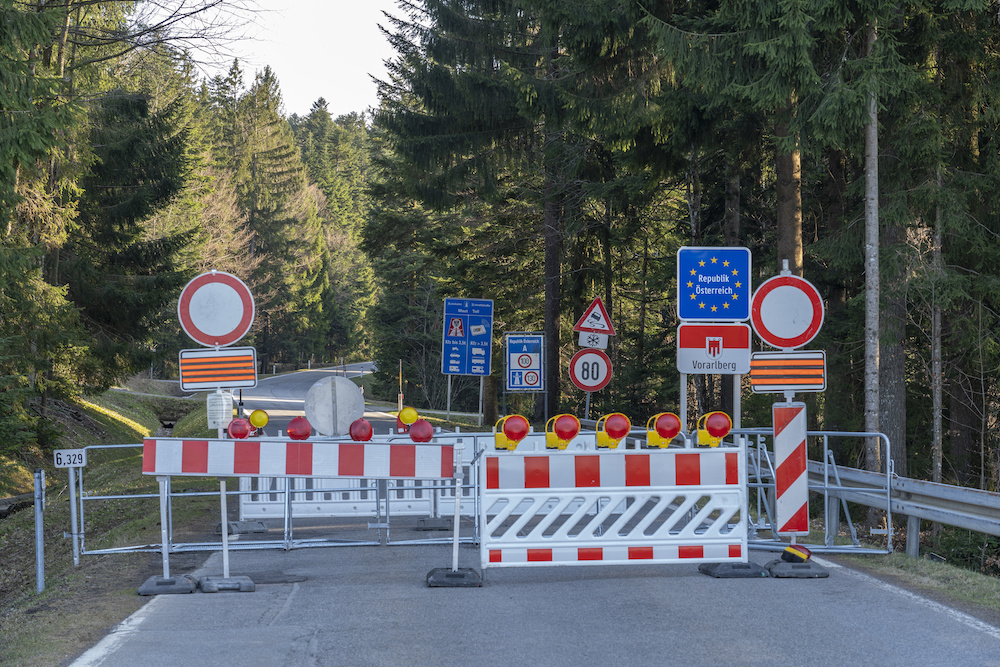
Austrian boder closure
Frontier controls that had all but disappeared - for example between France and Germany - were suddenly restored; and with financial aid for businesses and unemployed workers largely coming from the European nations, not the EU.
Prominent politicians in Poland, Italy, and Spain openly criticised the EU for failing to deliver on its promise of solidarity. Given the relative sizes of the budgets of the EU and European nations, it is inevitable that Governments will pick up most of the cost, as they struggle to ward off economic depression. But as a crisis intensifies - and financial and other resources become ever scarcer - the pressures on solidarity will grow. This was demonstrated by one EU member state purchasing the Russian 'Sputnik' vaccine in defiance of EU rules.
The ongoing antagonisms that the pandemic has stirred up between the US and China are more visible. Donald Trump's decision to label Covid-19 the "China virus" is typical of the US president's name-calling, blame-evading, populist political style. But it is also a reaction to efforts by Chinese officials to suggest that the virus might have originated in America.
One experienced observer in the U.S. commented: "I cannot think of a more dangerous time in the US-China relationship in the last 40 years". The pandemic also strengthened the hand of those in the Trump administration who had long wanted to dismantle international supply chains and repatriate production to the U.S.
Peter Navarro, an ardent protectionist in the Trump Presidency, argued the pandemic crisis demonstrated that, "in a global public health emergency, the U.S. is alone". It is certainly true that a situation where 97 per cent of all antibiotics in the U.S. are imported from China will be seen as acceptable again.
These kinds of considerations extend well beyond medicines and the strained US-China relationship. It was possible for a British government adviser to suggest (in the context of Brexit) that there was no real need for the UK to produce its own food. But with entire nations, as well as individuals, having to endure self-isolation, nobody can or should blithely assume that essential goods can always be imported from overseas.
The pandemic-driven backlash against globalisation will come initially from protectionists and national-security hawks. But it will gather force as it merges with other political currents that were gaining strength before Covid-19 came onto the world stage.
On the left, the environmental movement was already stigmatising air travel and demanding that localisation should roll back globalisation. On the right, the clamour for walls to keep out refugees and illegal immigrants was growing ever louder.
But while the anti-globalists are likely to have the political winds behind them in the aftermath of the pandemic, they do not have the best solutions. On the contrary, a pandemic is very much a global problem that ultimately demands some form of international governance.
Resuscitating the world's economies will also be much harder if countries move towards economic independence and self-sufficiency. On a national level, everybody disapproves of hoarders who grab the last toilet roll and pint of milk off the supermarket shelves, but, what happens when entire Countries and Nations behave like that?
As Nigel Barber pointed out we have already seen the past, so the citizens of the World should have no desire to see a re-run of the tragedies that were the two World Wars.
Conclusion
To quote the dahlai Lama:
"Whether we like it or not, we have all been born on this earth as part of one great human family. Rich or poor, educated or uneducated, belonging to one nation or another, to one religion or another, adhering to this ideology or that, ultimately each of us is just a human being like everyone else: we all desire happiness and do not want suffering. Furthermore, each of us has an equal right to pursue these goals".
I believe that liberal Nationalism where everyone has respect for other Countries and it's citizens, culture, values and ideals can be a good thing. We often hear in the West about embracing diversity, believing that everyone has a place and role in their society, so this philosophy applied to a global scale is only a small step away from truly making us a Human Global Family ... if we are only willing to make it happen.
References
Nigel Barber Ph.D., psychologytoday.com, Apr 04, 2018, The Resurgence of Nationalism
Elif Shafak, Novelist, Quartz, August 6, 2019, What makes nationalism so successful
Stanford Encyclopedia of Philosophy: nationalism
Lisa Wade, Pacific Standard 2017, Why Nationalism is so dangerous
Cas Mudde, Author, Populism: A Very Short Introduction, Oxford University Press, 2017
Miriam Webster Dictionary: Patriotism v Nationalism
